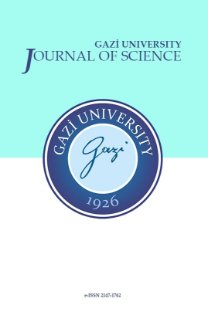Discrete Fuzzy Travel Times
From Analytical Perspective to Heuristic Approach: Travelling Salesman Problem with Discrete Fuzzy Travel Times
-,
___
- Laporte, G., Osman I.H., “Routing problems: A bibliography”, Annals of Operations Research, 61: 227-262 (1995).
- Gendreau, M., Laporte, G., Seguin, R., “Stochastic vehicle Operational Research, 88: 3-12 (1996). Journal of
- Bektas, T., “The multiple traveling salesman problem: an overview of formulations and solution procedures”, Omega, 34: 209-219 (2006).
- Jaillet, P., “A Priori solution of a traveling salesman problem in which a random subset of the customers are visited”, Operations Research, 36: 929-936 (1988).
- Dumas, Y., Desrosiers, J., Gelinas, E.; Solomon, M., “Optimal algorithm for the traveling salesman problem Research, 43: 367-371 (1995). Operations
- Voxman, W., “Canonical representations of discrete fuzzy numbers”, Fuzzy Sets and Systems, 118: 457-466 (2001).
- Wang, G., Wu, C., Chunhui, Z., Representation and operations of discrete fuzzy numbers, Southeast Asian Bulletin of Mathematics, 28: 1003-1010 (2005).
- Kung, J.Y., Chuang, T.N., “The shortest path problem with discrete fuzzy arc lengths”, Computers and Mathematics with Applications, 49: 263-270 (2005).
- Martin, O., Otto, S.W., Felten, E.W., “Large-step Markov chains for the TSP incorporating local search heuristics”, Operations Research Letter, 11: 219-224 (1992).
- Lourenço, H.R., Martin, O.C., Stützle, T., “A beginner’s introduction to iterated local search”, In: International Conference, (2001). 4th Metaheuristics
- Congram, R.K., Potts, C.N., Van de Velde, S.L., “An Iterated Dynasearch Algorithm for the Single- Machine Total Weighted Tardiness Scheduling Problem”, Informs Journal on Compuiıng, 14(1): 52-67 (2002).
- Stützle, T., “Applying iterated local search to the permutation flow shop problem”, Technical Report Darmstadt, 23 (1998). Intellektik, TU
- Yang, Y., Kreipl, S., Pinedo, M., “Heuristics for minimizing total weighted tardiness in flexible flow shops”, Journal of Scheduling, 3(2):89-108 (2000).
- Balas, E., Vazaconoulos, A., “Guided Local Search with Shifting Bottleneck for Job Shop Scheduling”, Management Science, 44(2): 262- 275 (1998).
- Stützle, T., “Iterated local search for the quadratic assignment problem”, European Journal of Operational Research, 174(3): 1519-1539 (2006).
- Lourenço, H.R., Martin, O.C., Stützle, T., “Handbooks of Metaheuristics”, Editor: Fred Glover, Kluwer Academic Publishers, 321-353 (2002).
- Bianchi, L., Knowles, J., Bowler, N., “Local search for the probabilistic traveling salesman problem: Correction to the 2-p-opt and 1-shift algorithms”, European Journal of Operational Research, 162(1): 206-219 (2005).
- Yayın Aralığı: 4
- Başlangıç: 1988
- Yayıncı: Gazi Üniversitesi, Fen Bilimleri Enstitüsü
Ahmet BAYLAR, M. EMIROGLU, Tamer BAGATUR
Uğur ÖZCAN, Hakan ÇERÇİOĞLU, Hadi GÖKÇEN, Bilal TOKLU
Safar FAZLI, Vahed AGHESHLOUEI
Sıddık SENER, Hikmet SENER, Varol KOÇ
